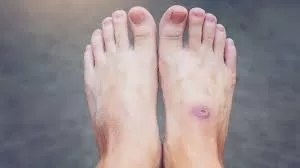An international team of scientists has uncovered significant genetic clues that may pave the way for new treatments for restless leg syndrome (RLS), a condition that affects many older adults.
RLS is characterized by an uncomfortable crawling sensation in the legs and a strong urge to move them, particularly in the evening or at night. This condition can significantly disrupt sleep and is often associated with depression, anxiety, cardiovascular disorders, hypertension, and diabetes.
Despite the prevalence of RLS, the underlying causes have remained largely unknown. In a groundbreaking study, researchers from the University of Munich (TUM) in Germany and the University of Cambridge combined data from three genome-wide association studies. Their analysis included over 100,000 RLS patients and more than 1.5 million unaffected individuals.
Published in the journal Nature Genetics, the study identified over 140 new genetic risk loci for RLS, increasing the total number of known loci eightfold to 164. Notably, three of these loci were found on the X chromosome.
The researchers did not find significant genetic differences between men and women, even though RLS is twice as common in women. Dr. Steven Bell from the University of Cambridge emphasized that understanding the genetic basis of RLS could lead to better management and treatment options, potentially improving the lives of millions affected worldwide.
Two of the newly identified genetic differences involve genes related to glutamate receptors 1 and 4, which are crucial for nerve and brain function. These receptors could be targeted by existing drugs, such as anticonvulsants like perampanel and lamotrigine, or used to develop new medications.
Preliminary trials have already shown promising responses to these drugs in RLS patients, suggesting that these genetic insights could soon translate into more effective treatments for this debilitating condition.
The study represents a significant step forward in RLS research, offering hope for those who suffer from this often-overlooked disorder. As further research builds on these findings, the prospect of improved treatments and better quality of life for RLS patients grows ever closer.











